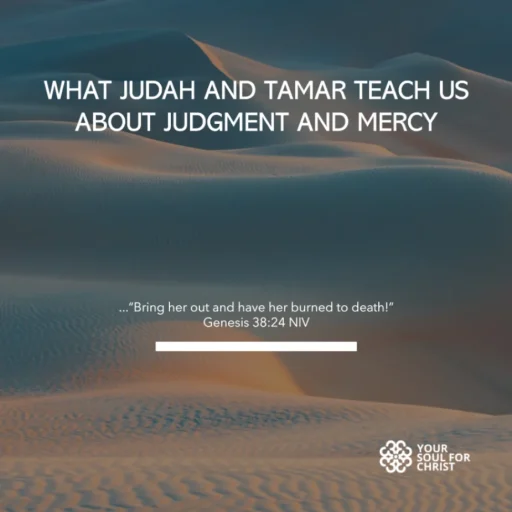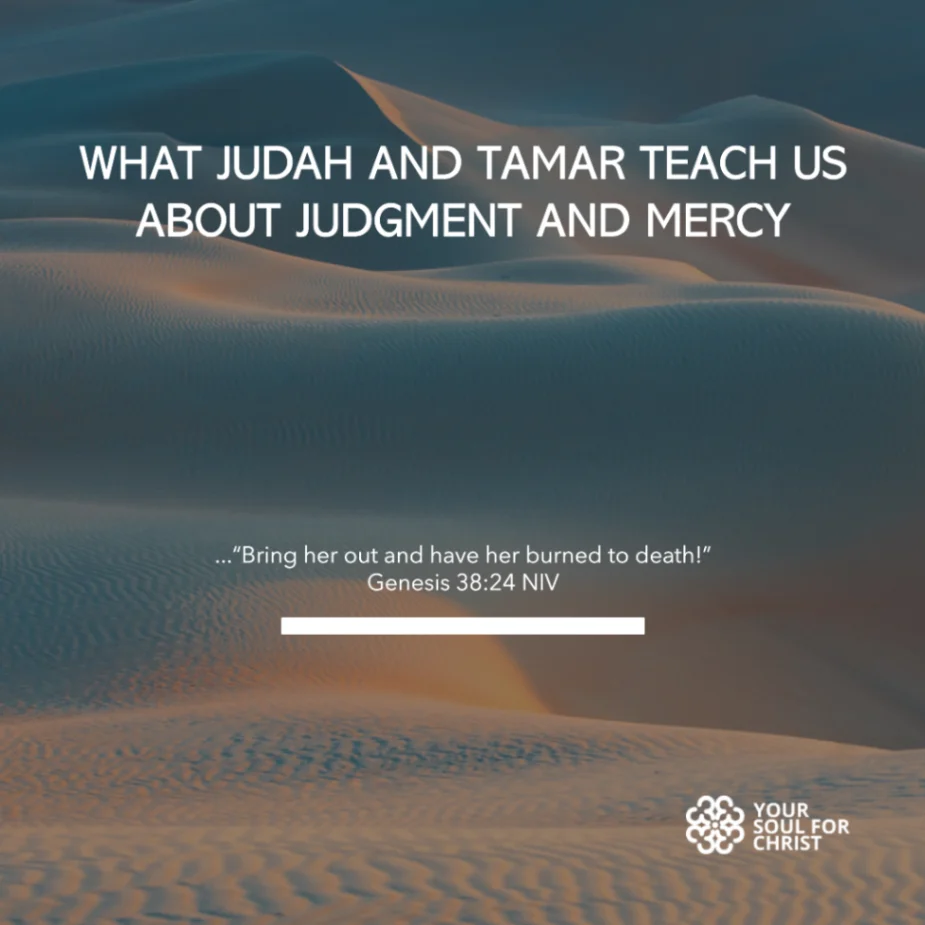About three months later Judah was told, “Your daughter-in-law Tamar is guilty of prostitution, and as a result she is now pregnant.” Judah said, “Bring her out and have her burned to death!”
Genesis 38:24 NIV
It is often far easier to condemn others than to examine the state of our own hearts. The story of Judah and Tamar provides a profound reminder of this truth. When Judah heard that Tamar, the widow of his deceased son, was pregnant, his immediate reaction was harsh. He demanded, “Bring her out and have her burned to death” (Genesis 38:24, NIV). Yet, in a dramatic turn, Tamar revealed the father of her child by presenting Judah’s own seal, cord, and staff.
The very items Tamar laid before him exposed Judah’s guilt. The man who had failed to fulfil his promise to her was now most eager to condemn her. This encounter holds up a mirror to our own tendencies. How quickly are we to pass judgment, often blind to the shortcomings within our own lives?
Tamar’s story challenges us deeply. Despite Judah’s unfaithfulness, she maintained her dignity and purity. It was only when he failed to uphold his responsibility that she took desperate action. Yet Judah rushed to condemn her without reflecting on his own failure. Jesus speaks directly to this human inclination in Matthew 7:3: “Why do you look at the speck of sawdust in your brother’s eye and pay no attention to the plank in your own eye?”
Before we ever dare to condemn another, we must first examine ourselves. Are we truly without fault? Might we be guilty of the very failures we are quick to criticise in others? Scripture calls us to self-examination. Paul urges, “Examine yourselves to see whether you are in the faith; test yourselves” (2 Corinthians 13:5, NIV). This inward reflection is not optional — it is essential for anyone who desires to live a life that glorifies God.
The call is clear: our priority must not be to condemn but to cultivate holiness within our own hearts. Living a life free from grounds for accusation must be our deepest concern. Personal integrity should matter more than finding faults in others. A Christ-like life shines not through the condemnation of others, but through humility, grace, and unwavering commitment to righteousness.
May we resist the temptation to condemn quickly and instead turn first to the mirror of God’s Word. In doing so, we allow the Holy Spirit to purify us, shaping us into people who live lives that honour Christ. Let us be known, not for the stones we throw, but for the grace we extend — beginning first with ourselves.

